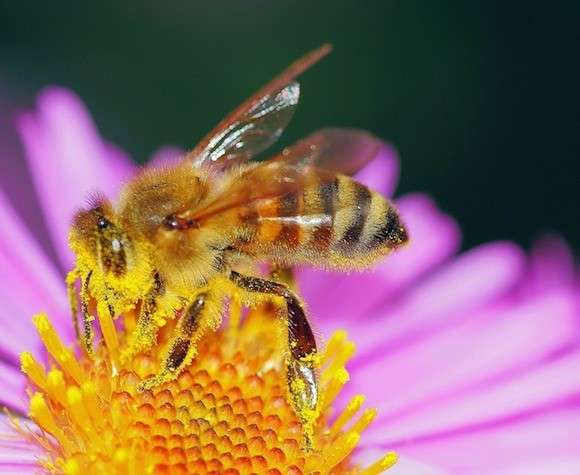Good news for hay fever sufferers

A forecast of below average rainfall over spring is expected to give hay fever sufferers in Melbourne a bit of reprieve this season.
With the official pollen count due to start on October 1, the University of Melbourne's own "Professor Pollen" Ed Newbigin says he expects similar conditions to last year.
"Grass pollen is the main culprit for hay fever in late spring and early summer; and the coming grass pollen season is forecast to be a mild one for Melbourne," said Associate Professor Newbigin.
"There's been dry conditions across much of western Victoria, while a strong El Nino is also forecast to start later in spring, which is usually associated with below average rainfall in eastern Australia.
"So all told, it's looking like being a dry end to an already dry year for Melbourne and that will limit grass growth and with it, pollen production."
Grass pollen season officially runs from October 1 to December 31.
Royal Melbourne Hospital and University of Melbourne allergy specialist Professor Jo Douglass said when the pollen count is high, sufferers can experience a range of symptoms, such as sneezing, watery eyes, a runny or blocked nose as well as itchy ears, nose and throat.
"Hay fever – or allergic rhino-conjuctivitis – affects one in six people in Australia and can be very debilitating, affecting sleep quality, school and work performance," Professor Douglass said.
One study suggests untreated severe allergic rhinitis can affect people's driving ability equivalent to a blood alcohol reading of 0.05 per cent.
Melbourne's pollen count has been running for nearly 30 years and Associate Professor Newbigin, from the School of Biosciences, has been involved since 1997.
Each day, individual microscopic grass pollen grains are collected by an air sampler machine and counted. The data is then posted to melbournepollen.com.au and paired with weather information to give an accurate daily forecast.
Knowing the pollen count is vital in assisting fever sufferers limit their symptoms with either medication or by staying indoors and avoiding high grass pollen areas.
Anti-histamines or anti-inflammatory nasal sprays can be purchased from pharmacies, while for more severe sufferers, desensitisation prescribed by an allergy specialist can also be an effective option.
In Melbourne, hay fever sufferers are mostly troubled by pollen from pastures in rural areas of the city, brought in by north and north-westerly winds. It is why the city's pollen count can be accurately recorded through a single counting station.
Associate Professor Newbigin says historical data shows there has been an overall reduction in grass pollen levels over the past 20 years in Melbourne, partly due to reduced annual rainfall and urban expansion.
But he admits tree pollen has likely increased because of the maturing of Melbourne's "urban forest" and its street-lining London plane trees.
Australia has yet to embrace a fully nation-wide pollen count, despite its importance for chronic hay fever sufferers, asthmatics and health professionals. The data is also crucial in understanding how grass pollen levels influence hospital admissions for asthma patients.
But things are changing and a new pollen counting station has only this week been established in Brisbane, joining those already in place in Melbourne, Sydney and Canberra.
"It seems ridiculous that we don't have pollen count information available for all Australian cities," Associate Professor Newbigin said.
"The situation in Australia can be compared to that which exists in Europe, where there is a network of over 600 pollen counting stations."
Either a skin or blood test can ascertain whether you are allergic to grass, tree and/or weed pollen.


















